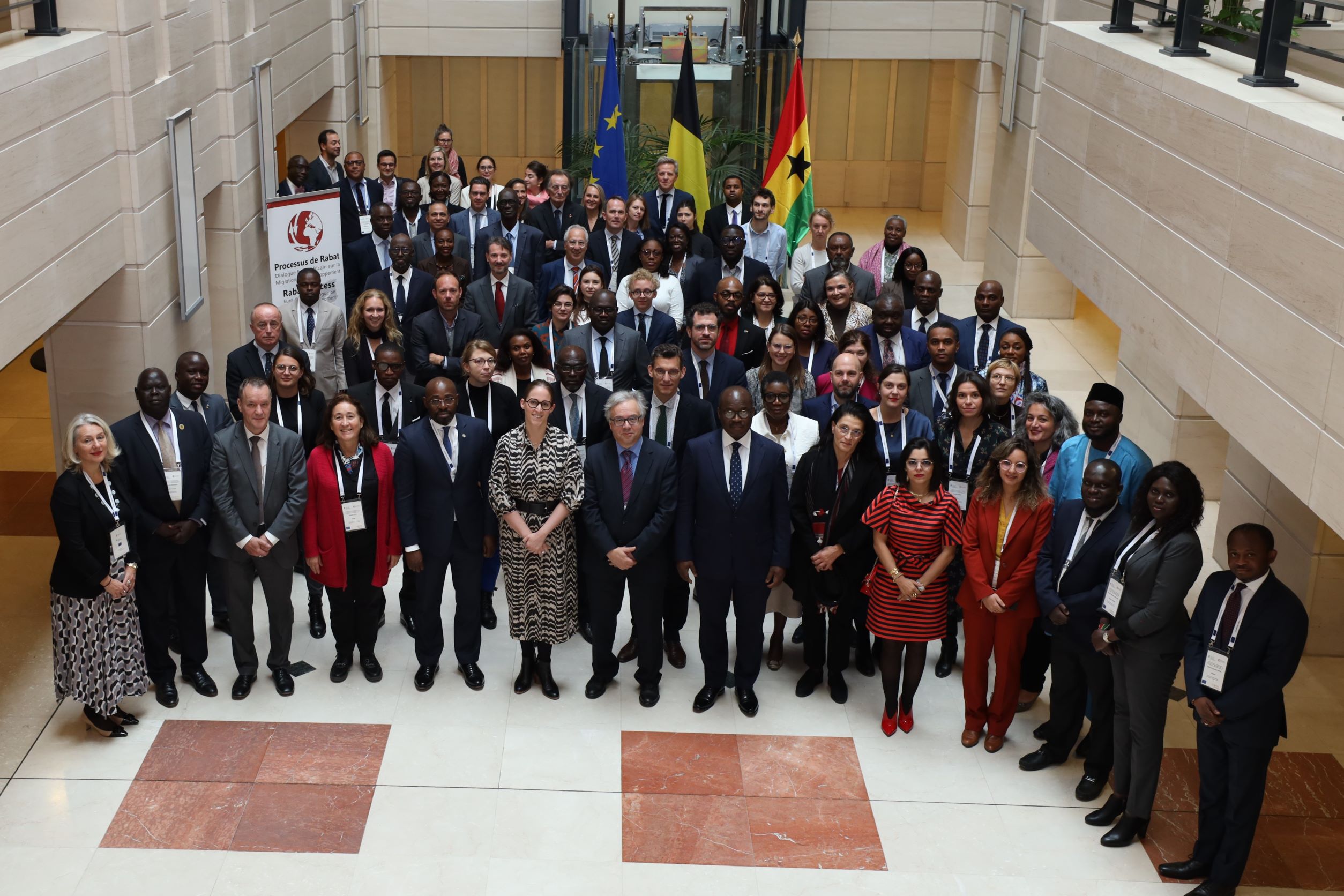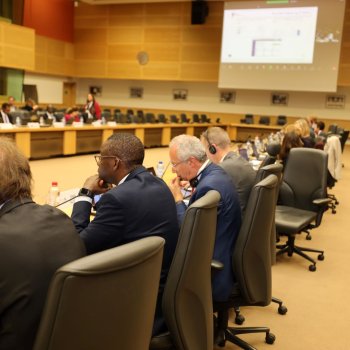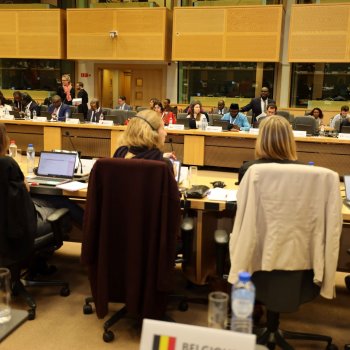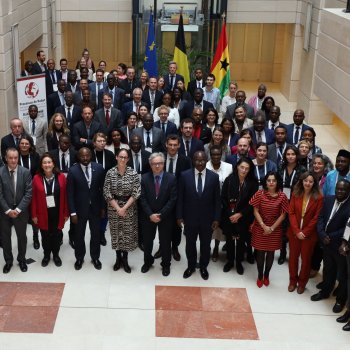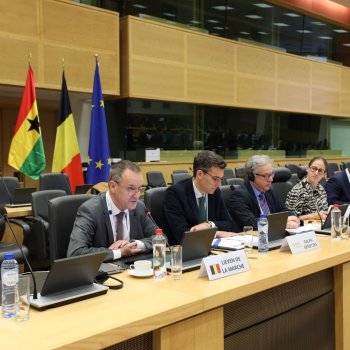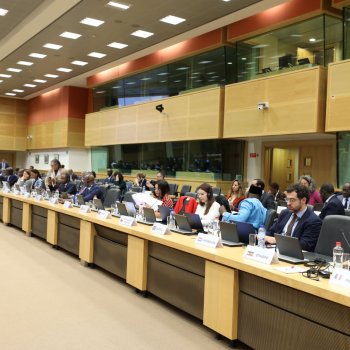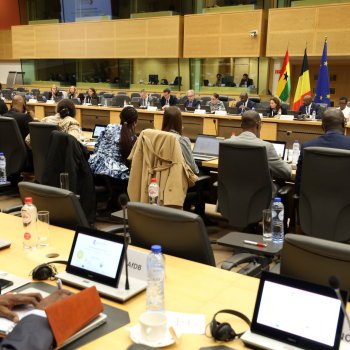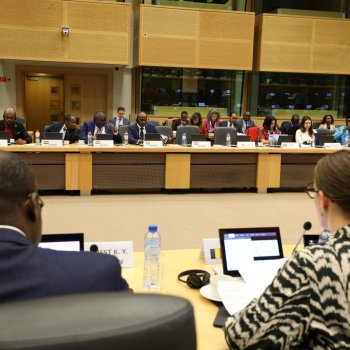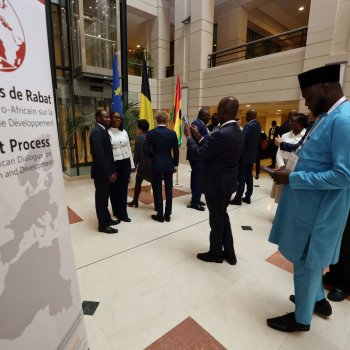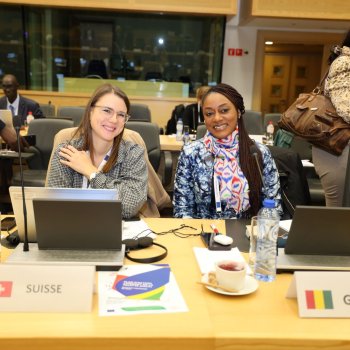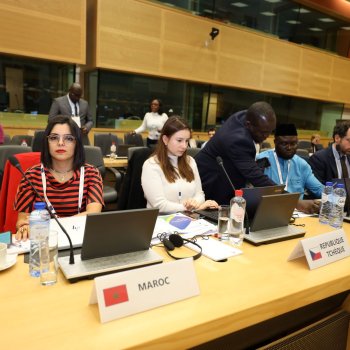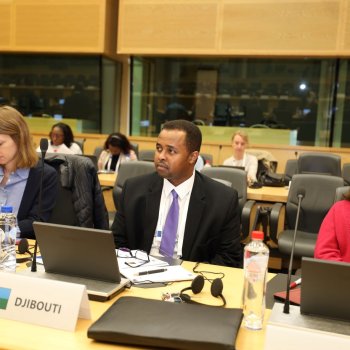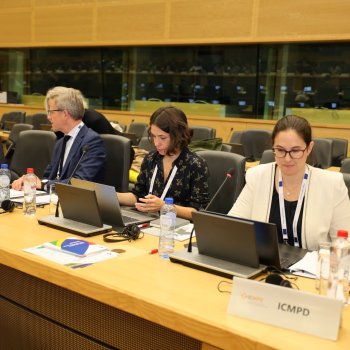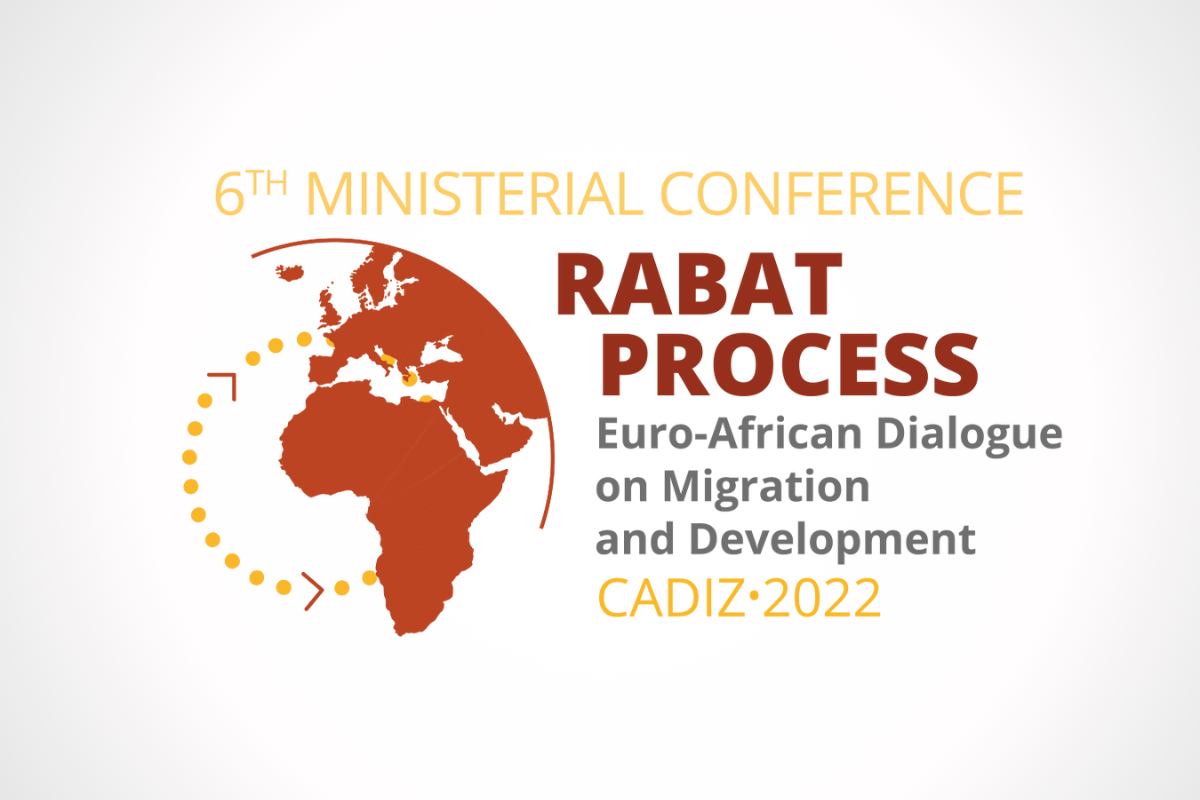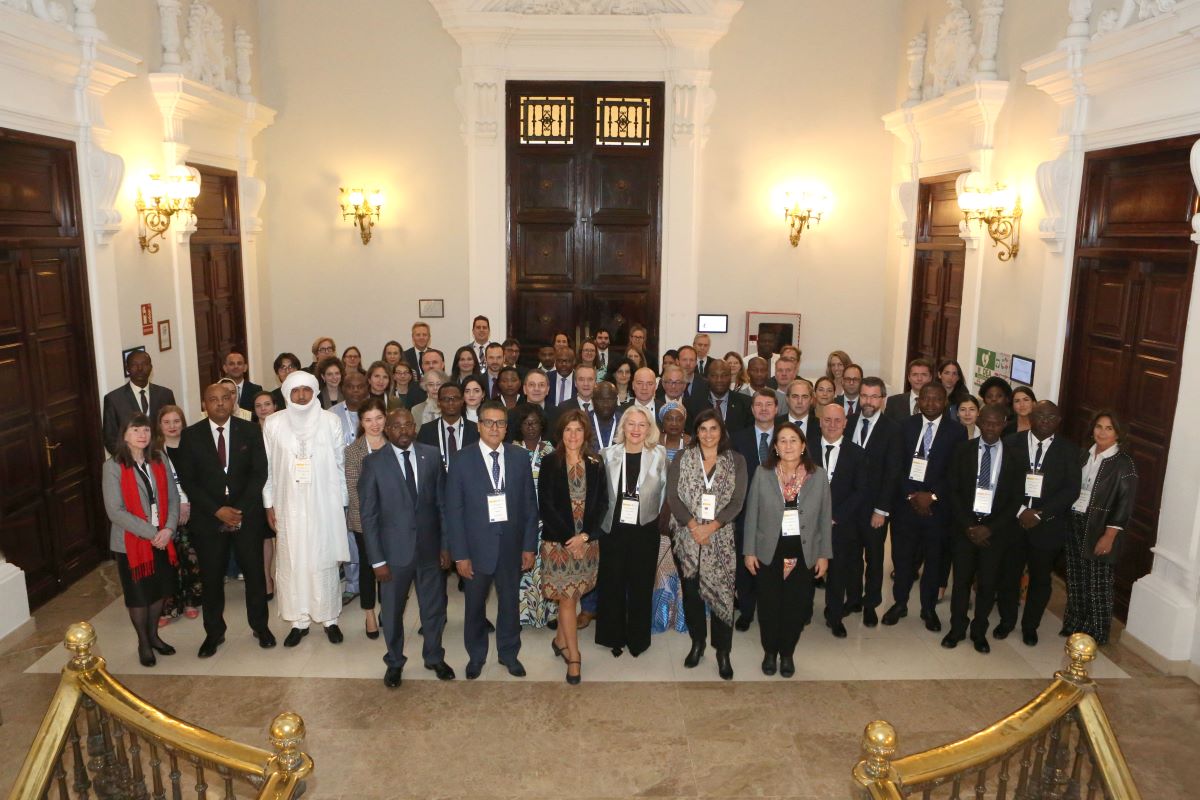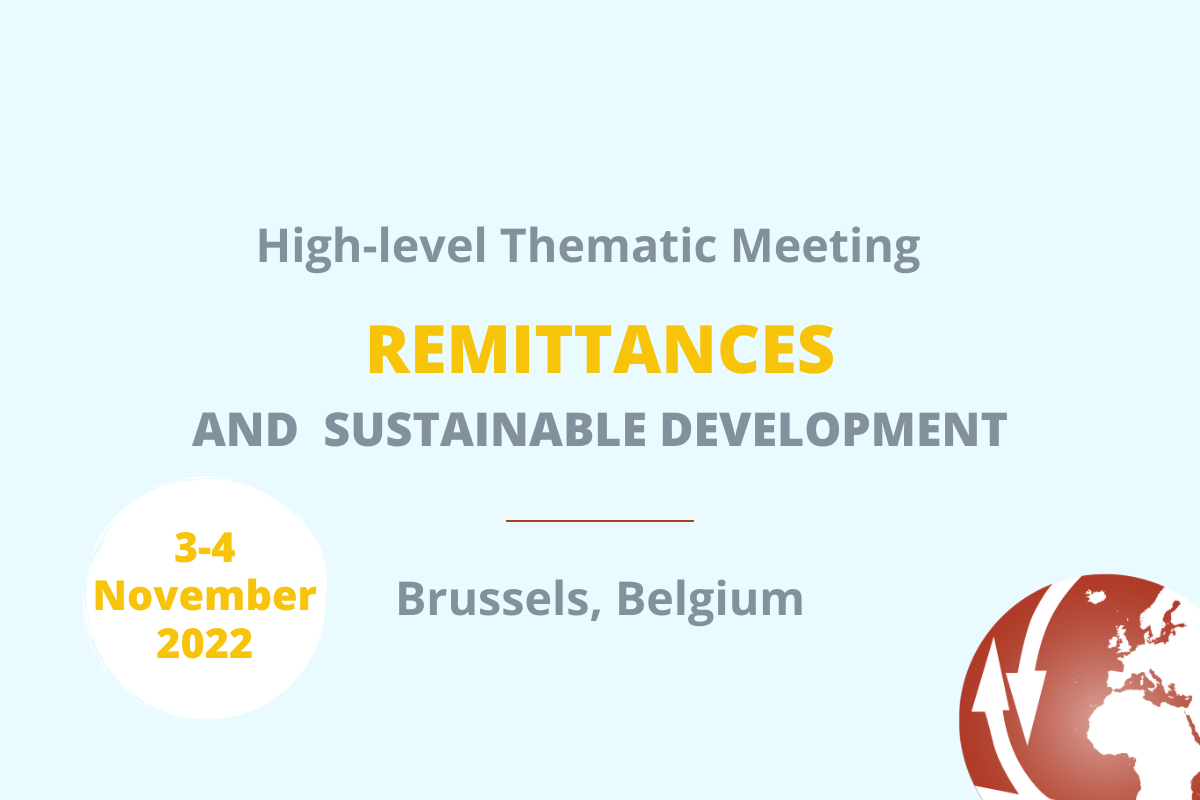On 3-4 November 2022, representatives of Rabat Process partners and organisations met in Brussels, Belgium for a High-Level Thematic Meeting on “Remittances and Sustainable Development”, co-chaired by Belgium and Ghana. They were joined by representatives from the Khartoum Process, a Dialogue focusing on the migration routes between the Horn of Africa and Europe.
A large and diverse audience
The meeting proved crucial in bringing together stakeholders associated with the global governance of remittances. 140 participants gathered in Brussels and connected online, representing 38 European and African countries from both Dialogues and over 30 international and non-governmental organisations. This large and diverse audience reflects the importance that the Rabat Process partners attach to the topic of remittances and sustainable development, which is the focus of Domain 1, Objective 1 of its multi-annual cooperation programme.
Examining the role of stakeholders and sharing concrete initiatives
On the first day, discussions focused on the overall context, state of play, challenges and perspectives for the future, as well as the role of different stakeholders in the field of remittances, such as institutional actors and private sector actors. Participants also tackled the crucial question of cost reduction of remittances and examined the potential of new technologies in this regard. The second meeting day was dedicated to sharing concrete initiatives that make remittances more relevant for development.
A field with multiple stakeholders
One of the conclusions of the meeting was that further meetings between the diverse stakeholders active in the field of remittances should be encouraged as part of an institutionalised framework. The meeting also provided a valuable platform for encouraging greater harmonisation between remittances-related and migration-oriented policies in both migrant-sending and migrant-hosting states. Moreover, it was concluded that financial regulators and private-sector money transfer operators can come together to exchange views on easing the burdens of regulatory compliance as these relate to the transfer of remittances. The conclusions also highlighted that “last mile solutions” should go hand in hand with inclusive digitalisation.
These takeaways show in practice how all actors, from institutions (be it national, international, or regional) to development banks and -agencies, diaspora organisations and the private sector in all its forms, can help formulate and inform policymaking.
The outcomes
The meeting was a mutual learning experience that improved the technical understanding of remittances and contributed to the replication of successful initiatives. The outcome document provides an overview of the main takeaways of the meeting, and reports on the best practices, challenges, and opportunities related to remittances and sustainable development as highlighted during the discussion.
Download
Outcome document: High-Level Thematic Meeting on “Remittances and Sustainable Development”

